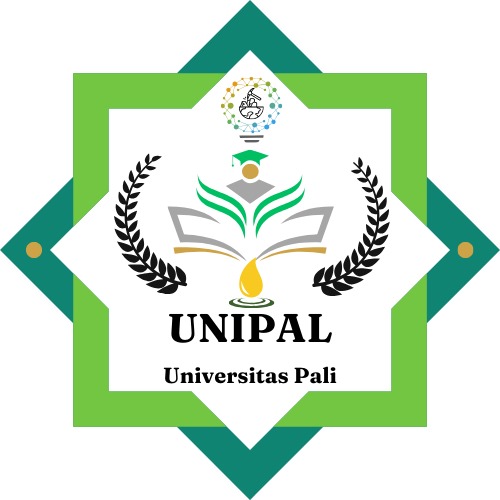Ecoliteracy Education for Sustainable Behavior
A School–Community Partnership Model
Keywords:
ecoliteracy, sustainable agriculture, vocational education, school–community partnership, TemanggungAbstract
Purpose – Agricultural environments are increasingly challenged by land degradation, post-harvest waste, and unsustainable cultivation practices. This study aims to examine how a school–community partnership model can enhance ecoliteracy and promote sustainable behavior among students at Temanggung, particularly within the Agricultural Product Processing Technology and Agribusiness of Plantation Crops programs.
Design/methods/approach – This qualitative case study employed in-depth interviews with teachers, students, local farmers, and small-scale agro-processing entrepreneurs; participatory observation of school- and community-based environmental activities; and documentation of field practices. The partnership program was implemented through project-based learning initiatives focusing on agricultural waste utilization, environmentally friendly farming, and ecologically conscious product marketing.
Findings – The results indicate that integrating school learning with real-world experiences provided by local communities enhances students’ ecological understanding and raises awareness of sustainable agricultural practices. Students developed environmentally friendly processed products and demonstrated increased knowledge of soil and water conservation techniques within the context of plantation crop cultivation.
Research implications/limitations – This research is context-specific and limited to a single vocational school with an agricultural focus, thus its findings are not intended for broad generalization. Additionally, behavioral observations were conducted over a relatively short post-activity period.
Originality/value – This study presents a practical approach to cultivating ecoliteracy in vocational agricultural education through active collaboration with local communities. It highlights the critical role of agricultural vocational schools in developing environmentally conscious and innovation-oriented youth actors for sustainable development.
References
Abe, K., Kato, K., & Ozaki, Y. (2010). Vegetation-Based Wastewater Treatment Technologies for Rural Areas in Japan. Japan Agricultural Research Quarterly Jarq, 44(3), 231–242. https://doi.org/10.6090/jarq.44.231
Fathmawati, F., Fachiroh, J., Gravitiani, E., Sarto, S., & Husodo, A. H. (2017). Nitrate in Drinking Water and Risk of Colorectal Cancer in Yogyakarta, Indonesia. Journal of Toxicology and Environmental Health Part A, 80(2), 120–128. https://doi.org/10.1080/15287394.2016.1260508
Firmahaya, N., & Piranti, A. S. (2022). Determination of Water Quality Status of Telaga Menjer Wonosobo, Indonesia: An Official Tool for Evaluating the Best Function of Water. Journal of Ecological Engineering, 23(3), 59–67. https://doi.org/10.12911/22998993/144692
Gomiero, T. (2016). Soil Degradation, Land Scarcity and Food Security: Reviewing a Complex Challenge. Sustainability, 8(3), 281. https://doi.org/10.3390/su8030281
Kasri, R. Y., Wirutomo, P., Kusnoputranto, H., & Moersidik, S. S. (2017). Citizen Engagement to Sustaining Community-Based Rural Water Supply in Indonesia. International Journal of Development Issues, 16(3), 276–288. https://doi.org/10.1108/ijdi-03-2017-0031
Lin, L., Yang, H., & Xu, X. (2022). Effects of Water Pollution on Human Health and Disease Heterogeneity: A Review. Frontiers in Environmental Science, 10. https://doi.org/10.3389/fenvs.2022.880246
Lowe, C., Kurscheid, J., Lal, A., Sadler, R., Kelly, M., Stewart, D., Laksono, B., Amaral, S., & Gray, D. J. (2021). Health Risk Assessment for Exposure to Nitrate in Drinking Water in Central Java, Indonesia. International Journal of Environmental Research and Public Health, 18(5), 2368. https://doi.org/10.3390/ijerph18052368
Maksum, A., Alimuddin, S. Z., Sahide, A., Muhammad, A., & Ma’arif, H. M. A. (2023). Agriculture and International Organization in Indonesia: The Twitter Analysis of FAO Indonesia. E3s Web of Conferences, 444, 01001. https://doi.org/10.1051/e3sconf/202344401001
Maruf, M. (2019). Indonesia Response and Recent Development of Law and Policy in Addressing Marine Plastic Litter. Journal of Indonesian Legal Studies, 4(2), 167–188. https://doi.org/10.15294/jils.v4i2.34757
Rofi, A. (2024). Water Pollution and Its Correlation to Mineral Water Consumption Expenditure. Iop Conference Series Earth and Environmental Science, 1313(1), 012012. https://doi.org/10.1088/1755-1315/1313/1/012012
Wang, Y., & Wang, X. (2023). Research Progress Related to Rural Domestic Sewage Treatment. Agricultural Sciences, 14(06), 775–784. https://doi.org/10.4236/as.2023.146052
Yu, X., Yang, Q., Gao, W., Tao, Y., & Chen, X. (2021). Investigation and Analysis of China’s Rural Water Environment Status Under the Background of Rural Revitalization. Iop Conference Series Earth and Environmental Science, 651(4), 042056. https://doi.org/10.1088/1755-1315/651/4/042056
Zhang, J., Mauzerall, D. L., Zhu, T., Liang, S., Ezzati, M., & Remais, J. V. (2010). Environmental Health in China: Progress Towards Clean Air and Safe Water. The Lancet, 375(9720), 1110–1119. https://doi.org/10.1016/s0140-6736(10)60062-1
Zhao, L., & Xiao, Q. (2023). Evaluation of Legal Regulation Countermeasures for Rural Water Environment Pollution Based on Environmental Sustainability. Nature Environmental Protection, 4(2). https://doi.org/10.38007/nep.2023.040209
Zhou, Q., Chen, J., Liu, S., Zhou, F., & Wen, H. (2024). Pollution Control and Well-Being in Rural Areas: A Study Based on Survey Data. Sustainability, 16(3), 1334. https://doi.org/10.3390/su16031334
Downloads
Published
How to Cite
Issue
Section
License
Copyright (c) 2025 Putri Isma Indriyani

This work is licensed under a Creative Commons Attribution-ShareAlike 4.0 International License.
















